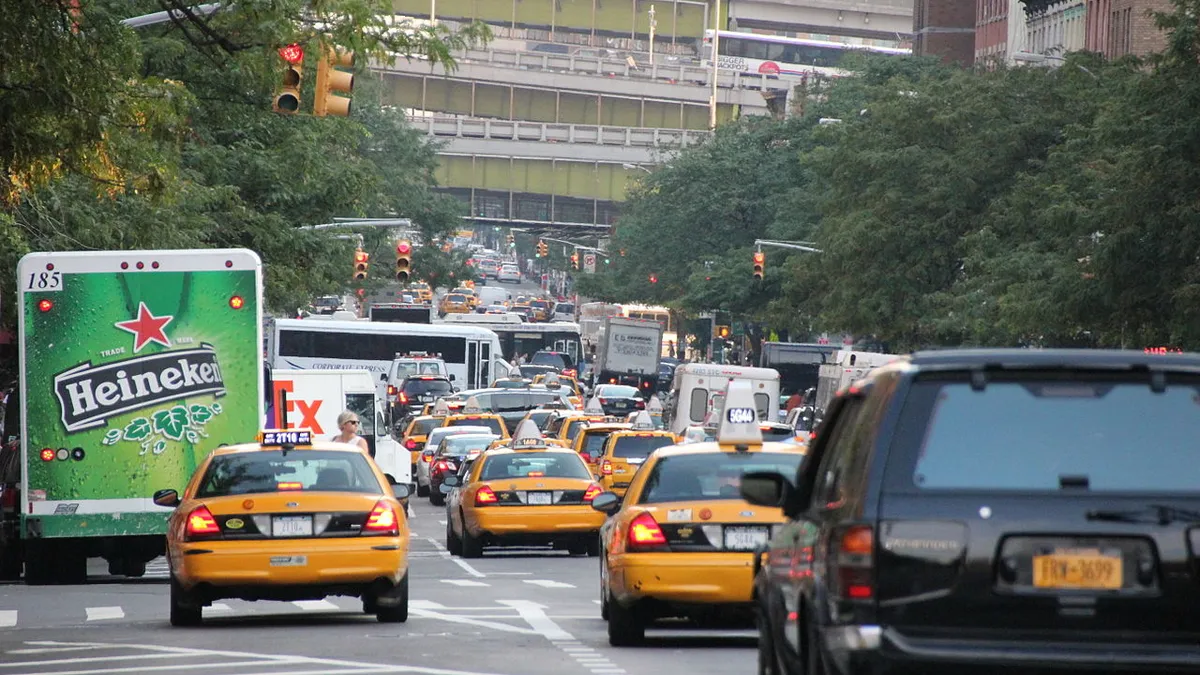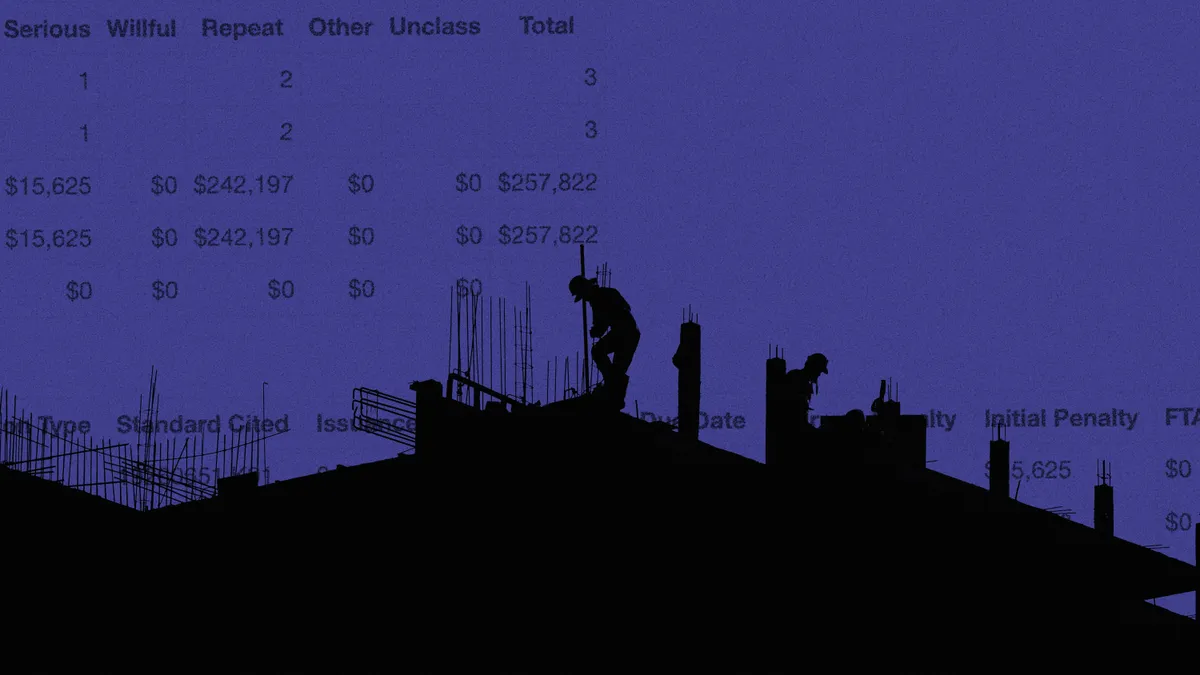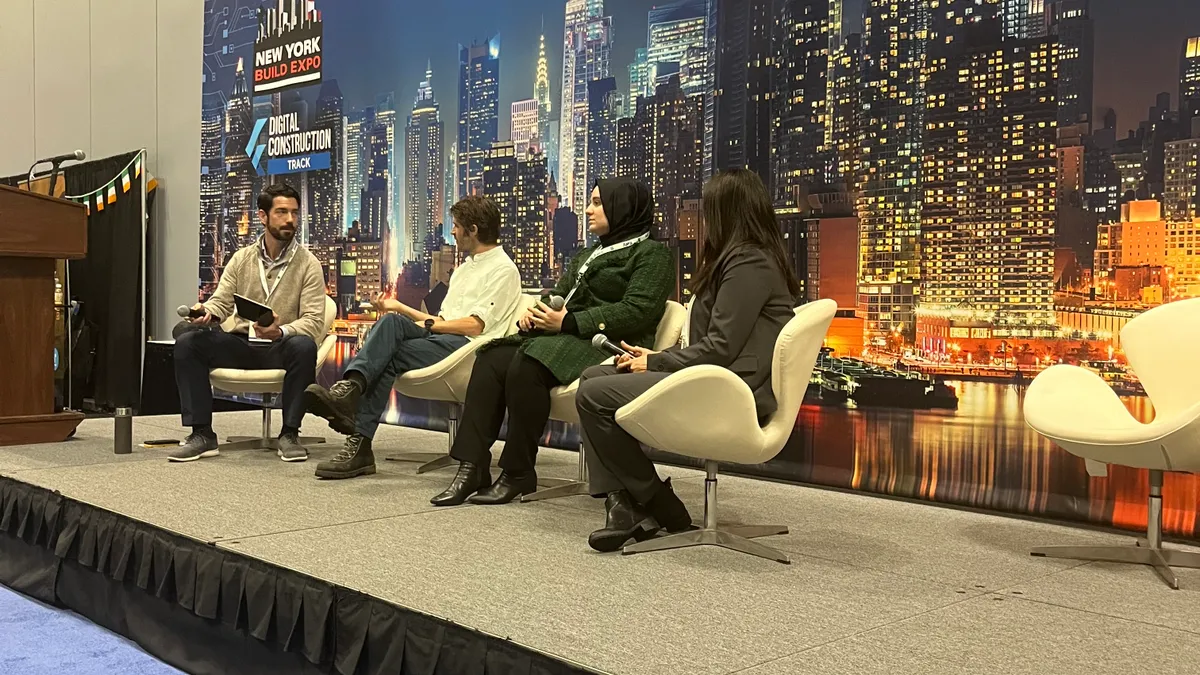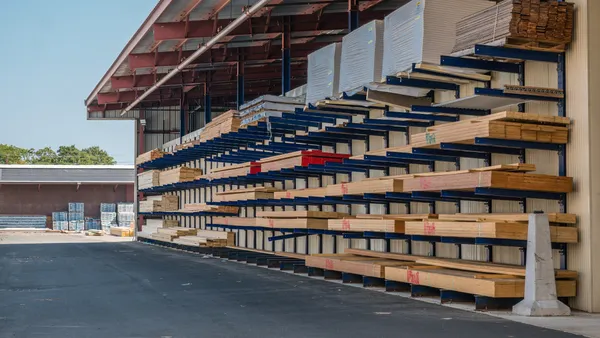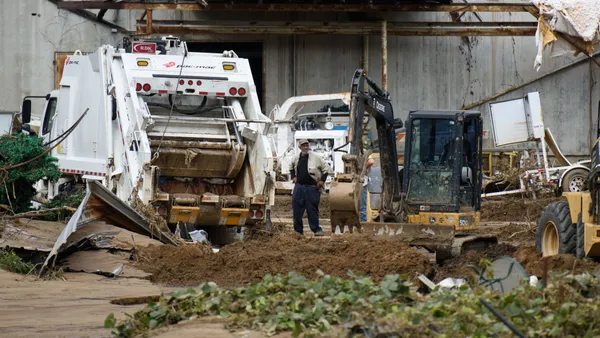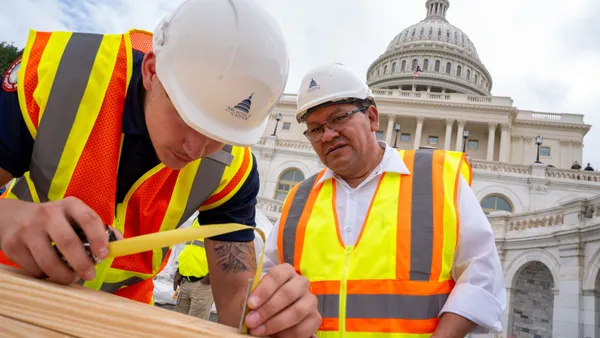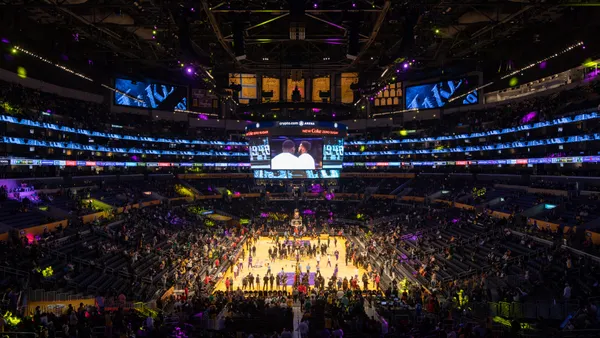Dive Brief:
-
Three in four Americans say they’d pay higher taxes or more in tolls to fund transportation infrastructure, according to an HNTB poll reviewed by Reuters.
-
An even higher number of respondents said they’d be willing to pay more in such fees if there were legal mandates that the funds only be used on the intended projects. Illinois and New Jersey recently approved such mandates for transportation-related fees.
-
A similar share (73%) of respondents said they back public-private partnerships (P3s) to build and maintain transportation infrastructure while eight in 10 would support the addition of tolls to more highways.
Dive Insight:
The results of the HNTB poll mirror similar feedback from a national Bloomberg survey earlier this year, which found that just over half (55%) of Americans would support an increase in the federal gas tax if it meant improvements to roads and bridges in their state.
The federal gas tax has held at 18.4 cents per gallon since 1993, largely because lawmakers have been reluctant to pass along tax increases to their voters. The gas tax feeds the Highway Trust Fund, which supports state surface transportation projects. Meanwhile, states including California, Indiana and Oregon have raised their gas taxes this year to fund large-scale infrastructure spending programs.
An increase in the federal gas tax is just one of many financing options on the table for President Donald Trump’s proposed $1 trillion infrastructure spend. Lawmakers disagree on the nature of the funding, with Republicans eschewing stimulus-like spending in favor of private-sector support and Democrats resisting private involvement in a public works program. The solution, however, is likely to include a mix of public and private funds.
So far, the Trump administration has called out 50 projects that are likely to be a priority for federal dollars. The administration also retooled its FASTLANE (now INFRA) grants program to focus on rural infrastructure and projects that receive private investment. In a meeting with state and local transportation officials last month, Transportation Secretary Elaine Chao said securing private investment would help projects gain access to federal funding under the proposed new spending plan, though full details have yet to be issued.
The industry is likely to turn to P3s for larger projects with the potential for revenue generation, such as toll roads and bridges. But a lack of education around the emerging project financing and operating mechanism has some industry observers concerned that there are still too many barriers for it to support the country’s infrastructure backlog reliably — a figure the American Society of Civil Engineers puts at $4.6 trillion through 2025.



